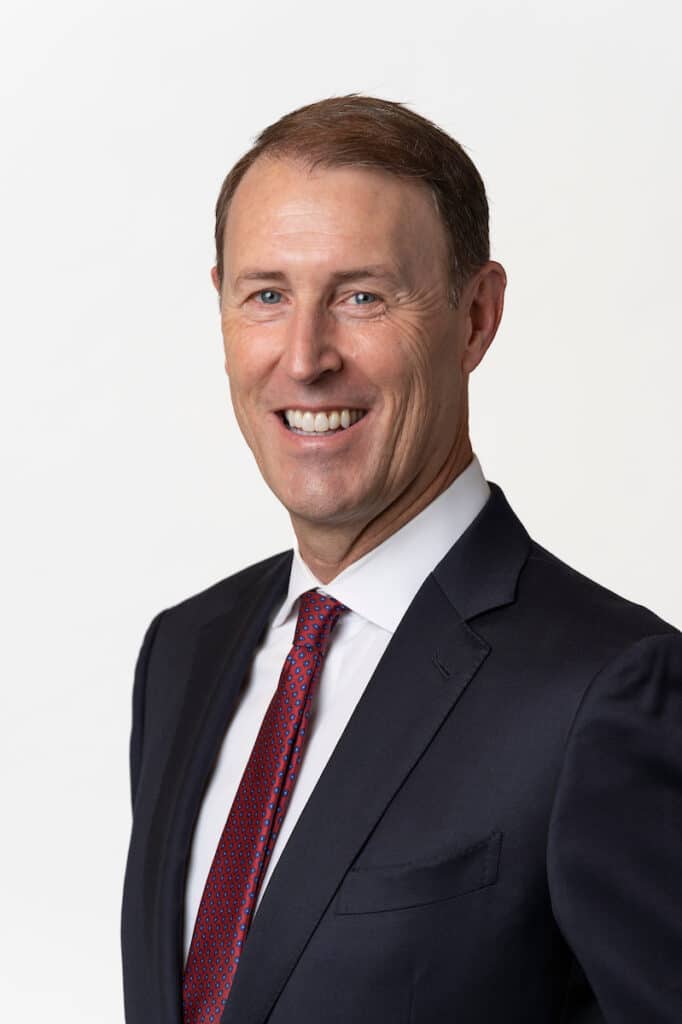Breaking Ground
Cris White, former CEO and Executive Director, Colorado Housing and Finance Authority

By Abram Mamet
7 min read
In February of this year, Cris White retired from his role as CEO of Colorado Housing and Finance Authority (CHFA). White spent 35 years at CHFA, serving for 15 as the agency’s Executive Director and CEO. While his decades-long tenure might seem extraordinary in many other organizations, it fits the mold at CHFA, where lengthy service is commonplace. White was only the fourth executive director in the agency’s history; the prior two directors, Roy Alexander and the late David W. Herlinger, each spent over 20 years with CHFA.

The commitment to service at CHFA is not surprising when considering the organization’s exceptional company culture, which has consistently earned CHFA recognition as one of the nation’s top workplaces. In a time when housing needs have become more desperate and deals more complicated, this relatively strong workplace environment has put CHFA in an ideal position to continue to get deals done, White says. “I would like to think that, along with the long tenures of most of the senior management team, we created an organization that had demonstrably positive results and developed a reputation for reliability, expertise, and partnership.”
Tax Credit Advisor sat down with White to discuss his accomplishments at CHFA, the elements that contribute to the organization’s strong workplace culture, and his hope for the future of Colorado’s housing landscape.
Tax Credit Advisor: What was your journey into housing? How did you first end up at CHFA?
Cris White: During my senior year in college, I was hired as an intern in CHFA’s business finance division, which was called commercial lending at the time. When I graduated from college, a position in that division opened. I applied for it and was hired. After a couple of years in the small business lending and asset management departments, I moved into managing all of CHFA’s loan portfolios, and that was my formal introduction to and journey into affordable housing.
TCA: Are there any accomplishments from your early years with the organization that particularly stand out?
CW: During those first couple of years in the business lending division, I had the opportunity to partner with several local banks in the underwriting and financing of several prominent local businesses, which was fun. A little later, when I was managing the loan portfolios, we had a situation arise wherein we arguably overlent in the assisted living market. Overbuilding in that market, coupled with the complexity of private pay and Medicaid requirements, caused a handful of loan defaults and delinquencies. We were able to successfully manage and dispose of certain of those loan assets in a way that minimized losses for CHFA but, more importantly, kept all the residents of those properties in place and housed.
TCA: I am struck by the relatively long tenures folks seem to have at CHFA, as it seems that the team there tends to spend decades with the organization. What are some of the qualities of CHFA that have fostered this lengthy dedication to work?
CW: The average tenure at CHFA is pretty amazing. We joke about it but also take it seriously in terms of strategic planning, knowledge management, and succession planning.
One of CHFA’s values is its commitment to employees. This includes ensuring that CHFA’s work environment is one where employees feel valued, supported, and respected as they work together to pursue the mission to strengthen Colorado by investing in affordable housing and community development.
Ultimately, maintaining an excellent culture and investing in employees enables CHFA to meet its mission more effectively. In recent years, CHFA has been recognized among the top workplaces in the United States based on employee satisfaction surveys. In surveys, employees cite CHFA’s mission-focused approach, benefits, opportunities for growth and development, and work-life balance as driving factors for contributing to CHFA being a great place to work.
TCA: What are some of the benefits of sticking with one organization for over three decades, particularly one involved in affordable housing?
CW: Staying in one place for 36 years is certainly uncommon these days, but I am proud of my long tenure at CHFA. The business of affordable housing finance is challenging and complex, to say the least. Being with CHFA for so long allowed me to experience just about everything one could experience in this business. I would like to think that, along with the long tenures of most of the senior management team, we created an organization that had demonstrably positive results and developed a reputation for reliability, expertise, and partnership.
TCA: In a similar vein, I am also struck by the wide variety of roles you’ve served in the organization. What benefit did this breadth of experience have in your work at CHFA and your time in leadership there?
CW: The variety and ever-increasing roles of responsibility I had at CHFA gave me the confidence of experience in my role as a leader. I felt like I had seen just about everything there was to see in terms of what it takes to get deals done and achieve our mission. I believe it gave me a certain degree of credibility that helped me as a leader as well.
TCA: Are there any innovations or unique approaches to affordable housing from CHFA or the state of Colorado generally that other Housing Finance Agencies around the country could learn from?
CW: Several come to mind.
Investment in community engagement: CHFA Community Relationship Managers live and work in communities throughout the state, serving as local liaisons.
Expanding homeownership access: CHFA’s outreach initiatives, Mi Hogar and Own Your Tomorrow, serve the Hispanic/Latino and Black and African American communities to reduce the homeownership gap in Colorado.
Small-scale housing support: We established a small-scale housing technical assistance program to support rural housing initiatives with 25 units or fewer.
Supporting special populations: CHFA explored housing needs for individuals with intellectual and developmental disabilities (I/DD), commissioning and publishing research on neuro-inclusive housing and communities with considerations on meeting the housing needs of I/DD individuals.
Financing affordable middle-income rental housing: As housing in some communities began to be unaffordable to those earning “middle incomes” (80 to 120 percent of area median income), CHFA developed the Middle-income Access Program, which provides loans to support rental housing for “missing middle” renters, who earn too much to qualify for traditional subsidized housing but who cannot afford market-rate rent.
TCA: What is your outlook for the future of CHFA’s work in today’s challenging and uncertain housing landscape?
CW: Throughout its more than 50-year history, CHFA has worked to fulfill its mission to invest in affordable housing and community development. Those five decades have included numerous periods of uncertainty, as well as several major economic downturns.
For example, in the 1980s, Colorado faced a volatile and often difficult economy. The state legislature responded by expanding CHFA’s mission to include economic development, and CHFA began deploying resources to support local jobs and businesses.
In more recent memory, CHFA responded to the COVID-19 pandemic to support Colorado renters, homeowners, and those operating or working for small businesses and nonprofits. CHFA deployed resources specifically to keep Coloradans stably housed and invested in organizations working in direct response to the pandemic, providing food assistance, rent and mortgage assistance, and/or services for those experiencing homelessness.
Even as the housing market remains challenging and uncertainty remains, there is broad agreement/alignment in addressing the issue of affordable housing, including strong local and statewide leadership, as well as leadership from the business and nonprofit communities.
As the need persists and challenges remain, CHFA will continue its work alongside partners and communities to pursue the vision that everyone in Colorado will have the opportunity for housing stability and economic prosperity.
TCA: Do you have any exciting plans or new ventures you aim to pursue in retirement? Any plans to remain involved in the affordable housing world?
CW: I was a soccer coach for many years before my role as CEO began to dominate my time, so I plan to get back into that, and my wife and I have some travel plans, but, other than that, I plan to take some time to relax and take things as they come.

